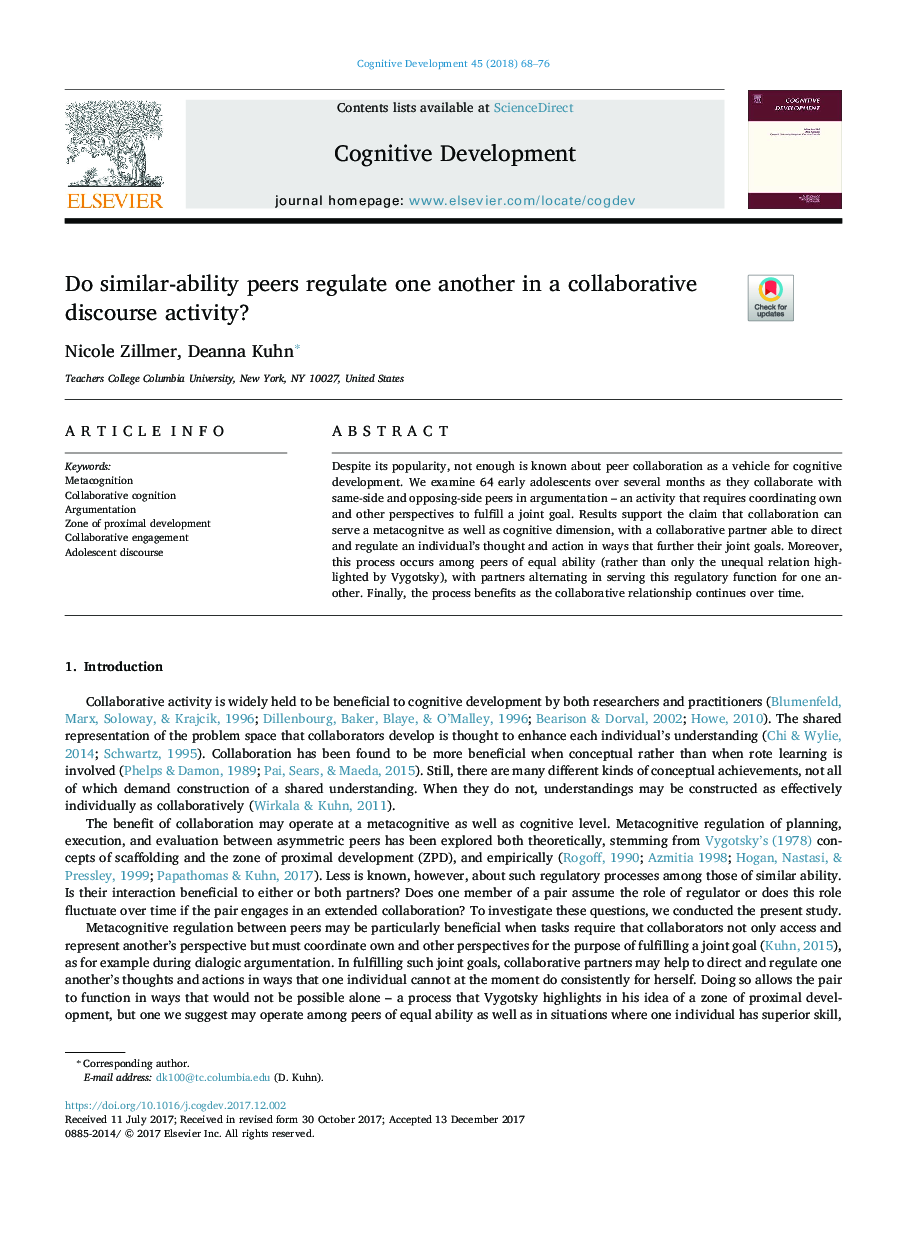| Article ID | Journal | Published Year | Pages | File Type |
|---|---|---|---|---|
| 7272266 | Cognitive Development | 2018 | 9 Pages |
Abstract
Despite its popularity, not enough is known about peer collaboration as a vehicle for cognitive development. We examine 64 early adolescents over several months as they collaborate with same-side and opposing-side peers in argumentation - an activity that requires coordinating own and other perspectives to fulfill a joint goal. Results support the claim that collaboration can serve a metacognitve as well as cognitive dimension, with a collaborative partner able to direct and regulate an individual's thought and action in ways that further their joint goals. Moreover, this process occurs among peers of equal ability (rather than only the unequal relation highlighted by Vygotsky), with partners alternating in serving this regulatory function for one another. Finally, the process benefits as the collaborative relationship continues over time.
Related Topics
Social Sciences and Humanities
Psychology
Developmental and Educational Psychology
Authors
Nicole Zillmer, Deanna Kuhn,
